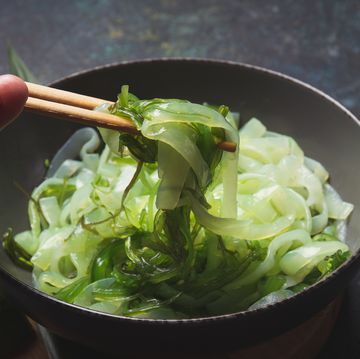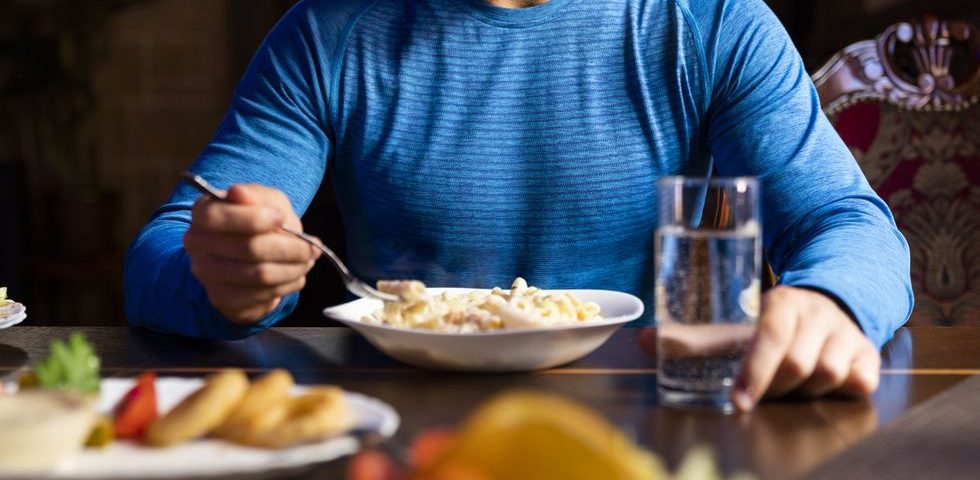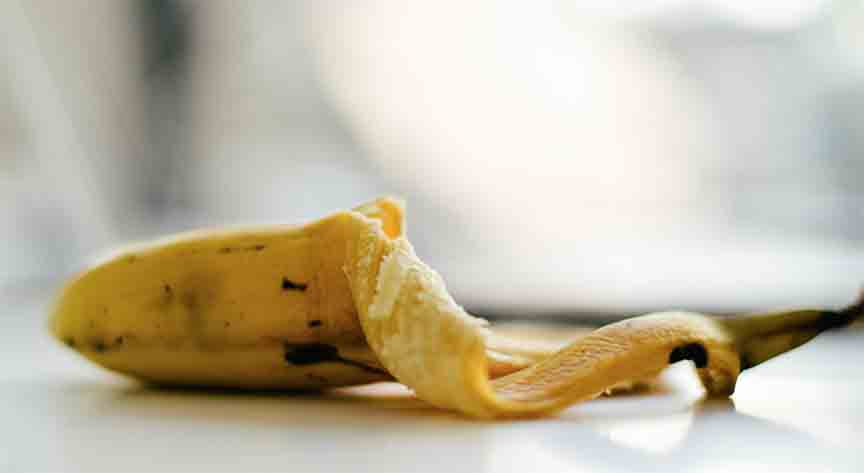
A CrossFit Games Athlete Shared 7 Moves to Help You Master Pushups and Pullups
September 2, 2021
Shirataki Noodles Are the Super-Low-Calorie, Keto-Friendly Noodle Your Life Needs
September 2, 2021How to find relief from that post-meal trouble.
You’ve just had a nice meal, and you find yourself clearing your throat. Then all-out coughing. And coughing some more. And you didn’t even get something down “the wrong throat.” While coughing if you’re otherwise healthy can be annoying, it’s generally pretty normal. However, like anything else, when the normal and often healthy protective measure of coughing becomes constant, it can signal a larger issue.
In general, coughing is the body’s way of clearing your airways, and “is typically triggered by an irritant in the throat or the lower airways,” explains Youngnan Jenny Cho, MD, an assistant professor of clinical otolaryngology at Columbia University and the medical director for the Metropolitan Opera. “Your throat closes momentarily and air pressure builds up in the chest. Then, as the larynx opens, a gust of air flies out, carrying any mucus or irritant with it.” Believe it or not, a strong cough can generate a 70 mph wind, says Dr. Cho.
But if the hacking happens after every single time you chow down, “it may be due to the reflux of stomach contents coming back up the esophagus,” explains MHadvisor Felice Schnoll-Sussman, MD, who’s also a professor of clinical medicine and director of the Jay Monahan Center for Gastrointestinal Health at Weill Cornell Medicine/New York Presbyterian. This reflux irritates the pharynx and larynx.
When acid reflux is more severe, it is then known as GERD (gastroesophageal reflux disease). This digestive disorder is most commonly accompanied by “a sensation of pressure or burning behind the breastbone and the sour taste in the mouth,” says Dr. Cho. Other symptoms of GERD can include chronic sore throat, excess mucus, and chronic throat clearing. Research shows that at least 25 percent of chronic cough cases—meaning your hacking lasts at least eight weeks—are tied to GERD.
To understand why GERD can cause coughing, it helps to know what triggers any kind of cough. Typically, it’s because your throat’s defense mechanisms did not react in time to prevent your food or liquids from going down the wrong pipe says Dr. Cho. “In the case of reflux or other throat irritation, the sensation in the throat can be hypersensitive and trigger a cough even during normal swallowing,” she says. Untreated reflux can be pretty serious. Beyond the annoying cough and heartburn, it can drop into the lungs and cause chronic bronchitis or pneumonia, says Dr. Schnoll-Sussman.
What to do about coughing after you eat
If your cough is a new symptom, if it’s persistent or getting worse, and if the cough trigger originates from one particular area in the throat that your doctor can help you pin down, make an appointment with a doctor, says Dr. Cho. Here’s why: You want to rule out any larger, more serious medical issues (including lung cancer) as soon as possible.
Luckily, if reflux is the root cause, there are relatively easy steps you can take. For starters eat slowly and mindfully, opt for more frequent, smaller meals rather than a single, larger one, and skip any big, late night eats before your head hits the pillow, advises Dr. Cho. And after you do eat, don’t get horizontal right away, advises. Dr. Schnoll-Sussman. “Sitting or standing for at least one to two hours after a meal will help keep food from backflowing into the esophagus and refluxing,” she says.
The types of food you consume can also trigger reflux, so if you’re experiencing it, “avoiding foods that may decrease the tone of the lower esophageal sphincter such as caffeinated beverages like coffee or colas, tomato-based products and citric products may be helpful,” advises Dr. Schnoll-Sussman. Dr. Cho adds that fans of fizzy drinks (yep, LaCroix and your favorite brew counts), you might want to steer clear. They “can cause burping which can also bring up acid into the throat,” says Dr. Cho. That irritates the throat and can trigger coughing. Note that some people with reflux might actually not have to nix some of these foods. Find out who and why here.
Chronic coughing due to reflux can also be treated with medications. Ask your doctor which is right for you—in some cases, antacids are effective, in others H2 blockers are a good choice, and other people might be right for medications called proton pump inhibitors (PPIs), which inhibit an enzyme involved in producing stomach acid. In some cases, antireflux surgery—”to strengthen the lower esophageal sphincter or repair a hiatal hernia,” explains Dr. Schnoll-Sussman, may even be an appropriate option.
https://www.menshealth.com/health/a37452596/why-do-i-cough-after-eating/


